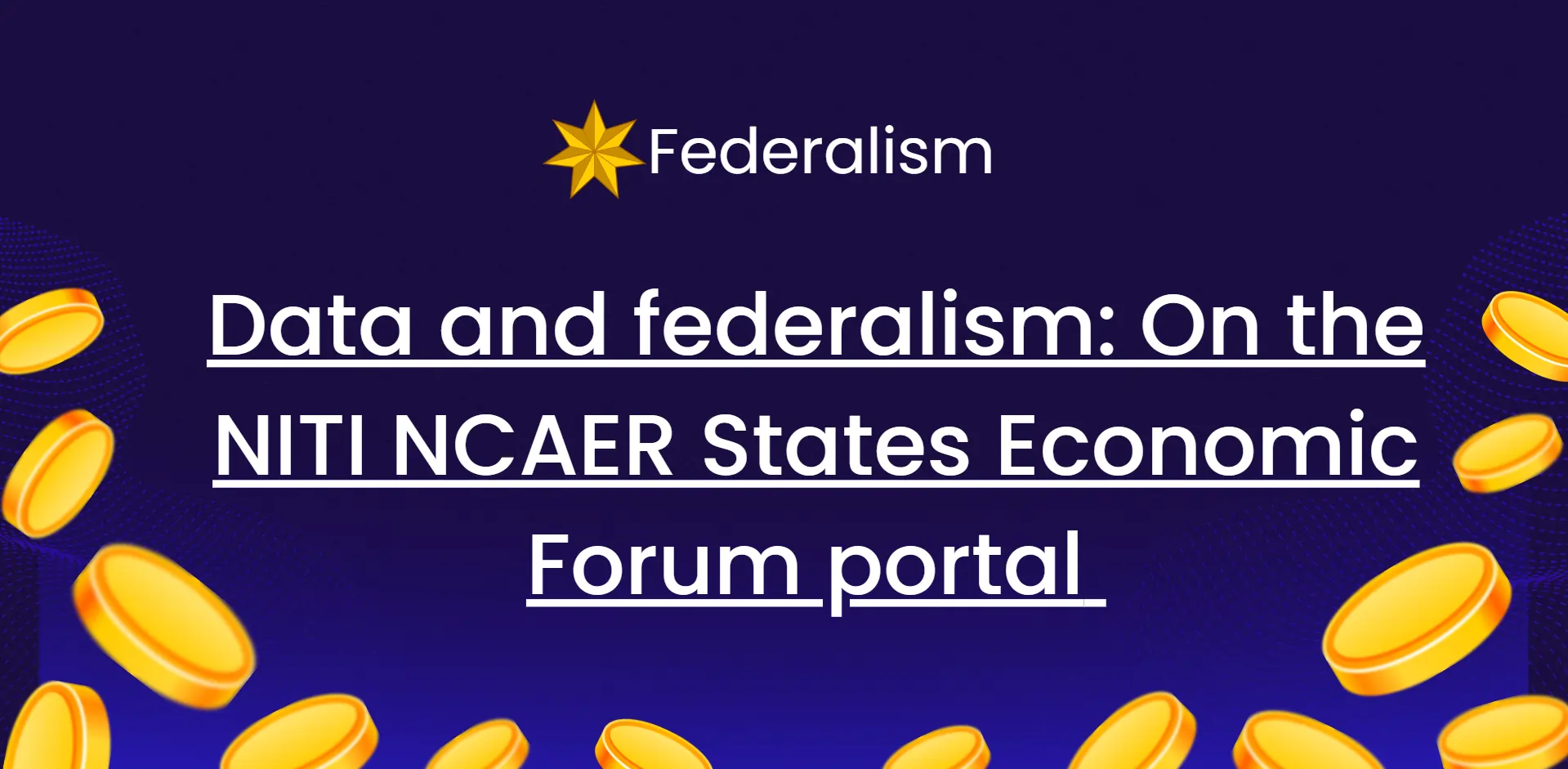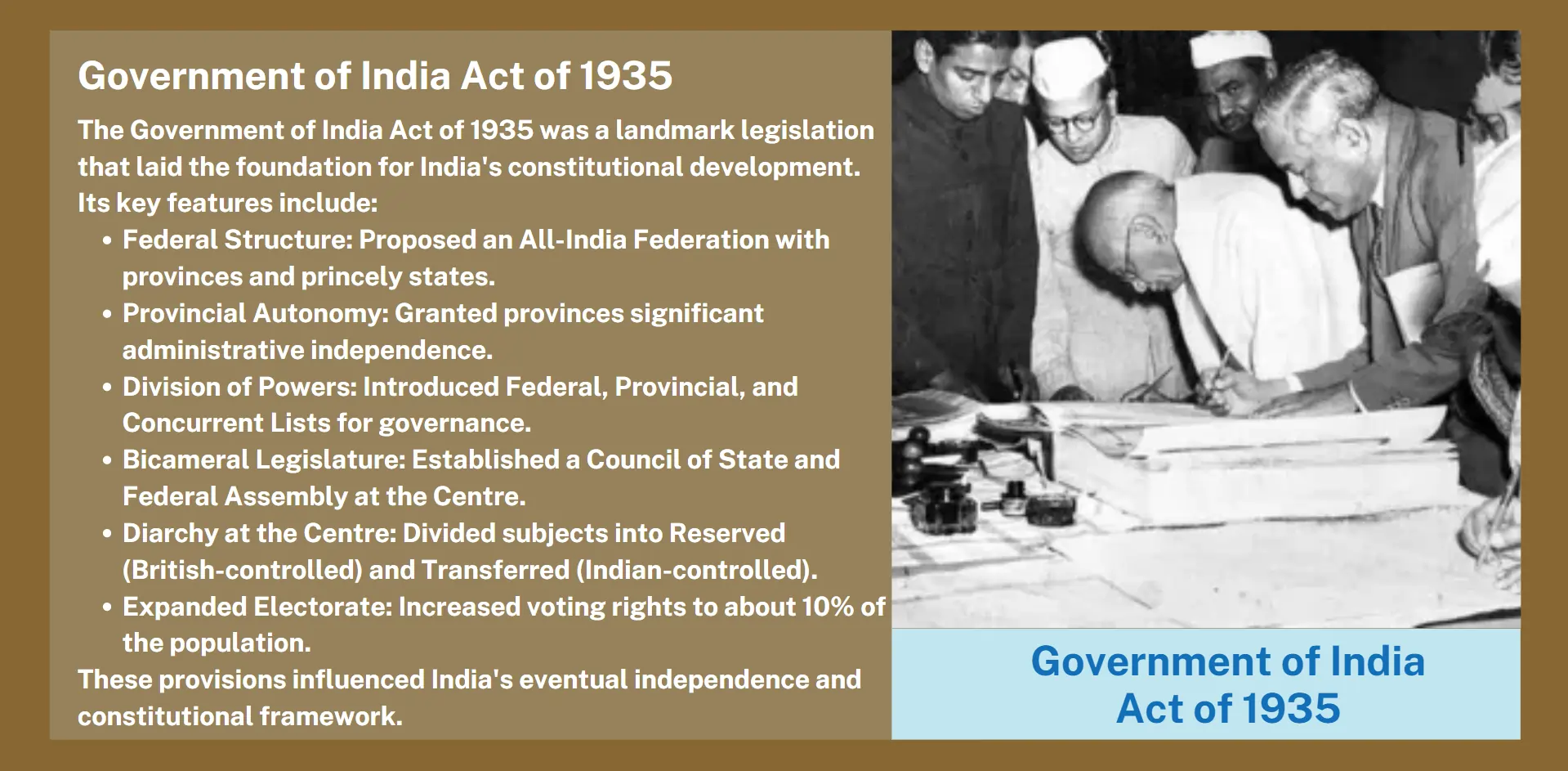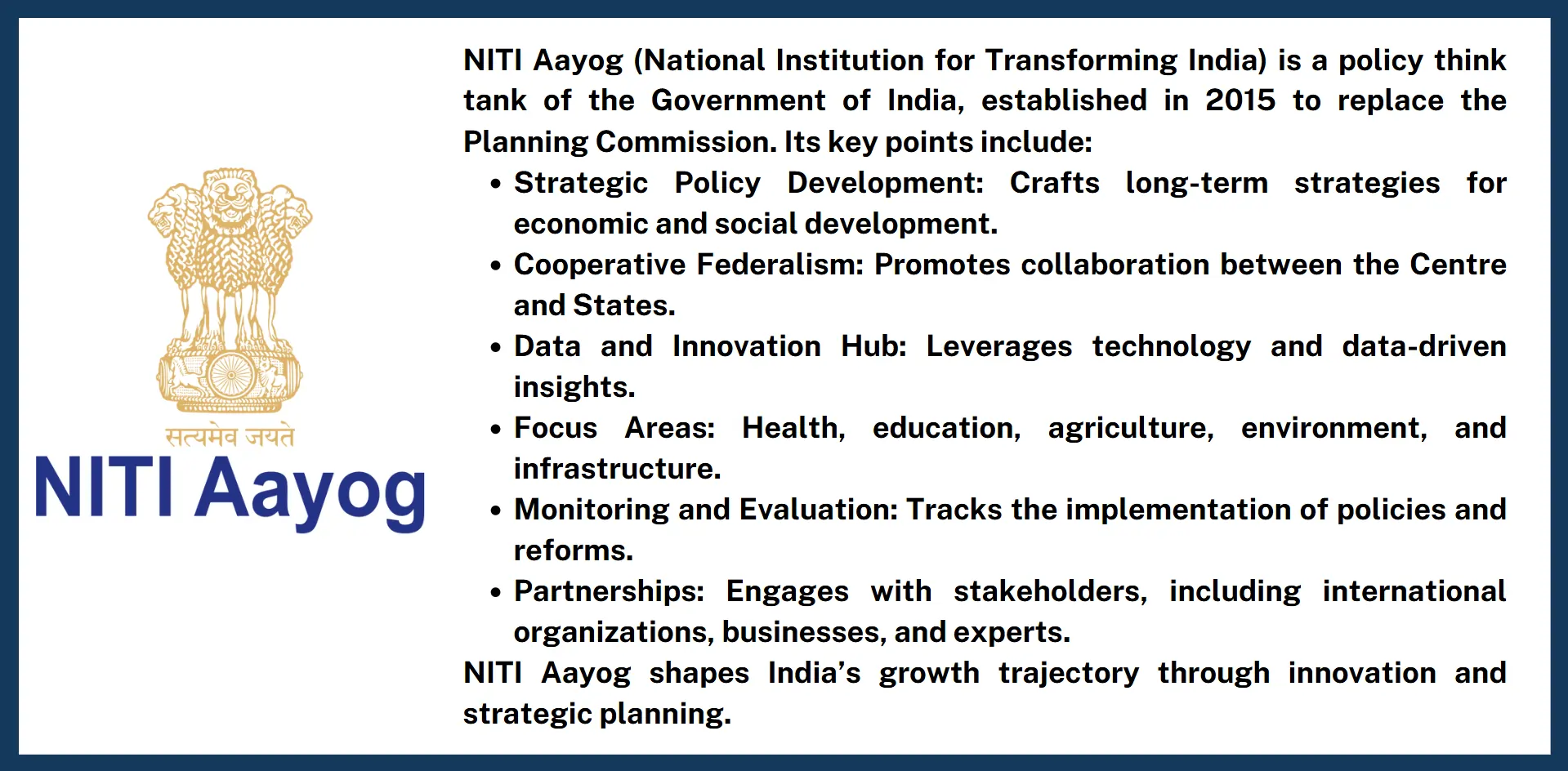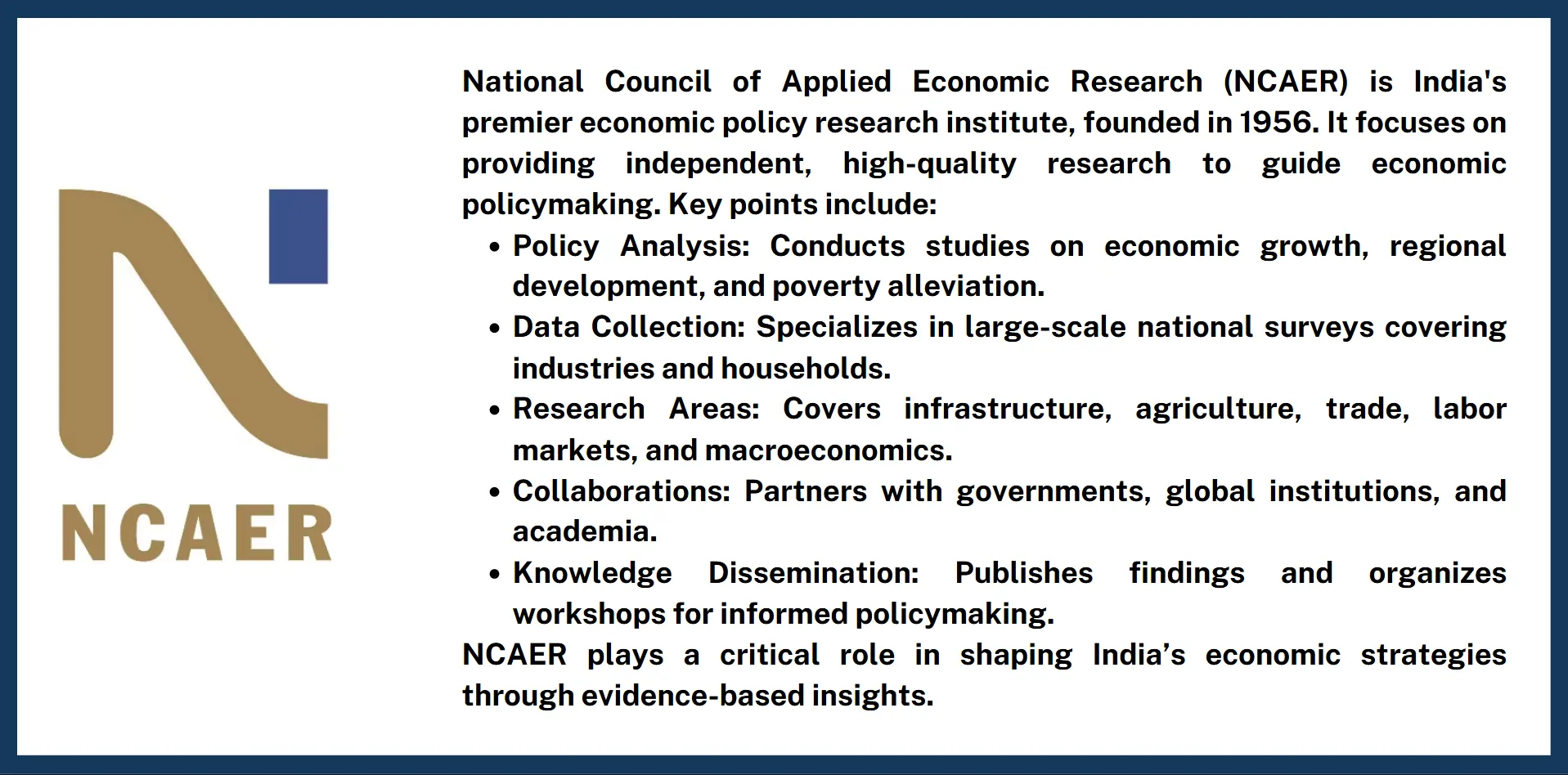The NITI NCAER States Economic Forum became operational through NITI Aayog and NCAER as a portal which unites state finance data. Users can access state-by-state reports regarding macroeconomic indicators along with human development statistics through the platform which enables nationwide fiscal comparison.

Federalism serves as the core element that defines Indian governance because it distributes both power and financial resources between national institutions and state governments. A diverse and dynamic economy such as India depends heavily on data for both making well-informed policies and closing governance gaps. Through the NITI NCAER States Economic Forum portal we can access a complete set of indicators which focuses on strengthening the collaborative relationship between federal levels of the government. The portal provides stakeholders including policymakers and researchers with practical data insights about revenue-sharing and resource allocation for more transparent and responsible federal decision-making in India.
Understanding Federalism in India
As a system of governance power is distributed between both a central government authority and regional units. The federal system of India develops in a unique manner which results from its multitudinous cultural diversity and political linguistic composition.
Definition and Principles of Federalism
The Indian practice of federal governance involves dividing authority between central government and state governments across legislative spheres and executive roles as well as fiscal matters. The division of powers emerges from the provisions of the Constitution. The federal cooperative methodology promotes government partnerships between different jurisdictions while ensuring each jurisdiction maintains independent decision-making capabilities.
Historical Context of Indian Federalism
Indian federalism found its origins during the colonial era. A federal structure emerged from the Government of India Act 1935 which offered guidance for the post-independence Indian Constitution. Federal model in India shows uniqueness through the integration of unitary aspects with characteristics from federalism concepts. The chosen arrangement of "quasi-federalism" prioritized nationwide unity against preserving different areas while maintaining their independence.

Challenges in Centre-State Relations
Over the past years the connection between India's national government and state authorities has passed through diverse hurdles. The recurring problems in India stem from conflicts about resource distribution, legislative differences and financial budget imbalances. The State demand for decentralized power usually creates tension against the central government requirement for standardized national policies. Federalism in India exists on a fine line requiring careful management due to these competing interests.
Significance of Federalism
Indian federalism functions as a crucial system because it enables the integration of diverse societal groups within the nation. Local matters fall under State jurisdiction through this system yet the national challenges are handled by the central authority. Through its emphasis on cooperation federalism delivers government services that identify and resolve both regional and national requirements.
Role of Data in Strengthening Federalism
Federal governance in India bases its effectiveness on data collection. The implementation of data as actionable insights supports both evidence-based policy creation and enhanced state-central government cooperative initiatives.
Enhancing Transparency and Accountability
Transparency is vital since it makes officials more transparent because it offers precise data to decision makers. Through trustworthy numerical data people alongside decision-makers can monitor program execution plus resource distribution. Through public access to data about finances, governments can demonstrate accountability thus reducing disputes among Central and State governments.
Informed Policy Formulation
The use of data as a foundation feeds into better federalism since it enables better policy design decisions. With comprehensive socio-economic data combined with health, educational and employment records States become capable of pinpointing unique regional challenges to create appropriate solutions. Through decentralization policies match different regional needs to become better reflected within a framework of cooperative federalism.
Addressing Regional Disparities
Statistical information shows that different parts of the country experience varying levels of resource disparities including infrastructure quality alongside income levels along with access to essential facilities. Equitable resource allocation and development strategy planning depend heavily on this information. The use of standardized data enables the central government to collaborate with state authorities for constructive discussions about inequality management.
Promoting Evidence-Based Collaboration
The federal system of India unites around datasets as a point of agreement. The NITI NCAER States Economic Forum portal grants stakeholders access to uniform and comparable datasets for everyone involved. The use of evidence-based discussions helps states and the center find agreeable solutions to issues regarding fund sharing and distribution.
Data improves federalism by establishing trust through data sharing and by delivering better policy results and by filling governance gaps. The development of a powerful data infrastructure serves as a necessary element to build a robust dynamic federal system of India.
Overview of the Portal
The NITI NCAER States Economic Forum portal functions as an innovative platform which allows better data access and supports evidence-driven policy development for federal governance in India.
Development and Purpose of the Portal
- NITI Aayog and the National Council of Applied Economic Research (NCAER) came together to form this portal.
- A vital mission of this platform exists to establish a unified data system containing all state economic and fiscal information.
- Policymakers and researchers can access a unified information source through this platform to guide their governance-related discussions and actions in India.
Key Features of the Portal
The portal contains numerous features which create a high-value resource for users.
- The platform contains a large data collection base which provides monetary and economic statistical data spanning thirty years throughout different states.
- Users can find in-depth performance evaluations of economic and fiscal activities in the State Reports section which examines both differences between states and overall patterns.
- A visual tool in the State Fiscal and Economic Dashboard presents trends to users in ways that simplify complex data review.
- The portal features a Research and Commentary segment along with expert insights about policies that serve to expand its role as a knowledge hub.
Impact on Data-Driven Governance
The portal serves as a central environmental factor which strengthens the practice of cooperative federalism. Standardized data presentation within this platform enables communication between the government levels and supports their focused discussions concerning budget allocation policies alongside economic reform strategies. Governance receives better benefits because the system makes information accessible which allows stakeholders to use verified data instead of guesses to enhance their decision-making capabilities.
The NITI NCAER States Economic Forum portal represents a significant achievement in the development of data-cantered federal practices in India. The tool provides essential resources which enable both policymakers and researchers to tackle current governance challenges properly.
Impact on Centre-State Relations
The federal framework of India hinges on the fundamental connection between national government and local administration entities for governance advancement. The NITI NCAER States Economic Forum portal transforms state-to-Centre relations through its data-driven interaction methods.

Facilitating Transparent Decision-Making
The portal enhances transparency because it provides consistent economic and fiscal information between different states. The accessible credible datasets enable Centre and States to work with verified information which decreases their disputes about data quality. Through transparent access to data both entities can initiate equitable dialogues on disputed revenue-sharing and fiscal transfer matters thus strengthening Center-State relationships.
Encouraging Evidence-Based Dialogue
The portal provides accurate insights to policymakers which enables them to conduct productive discussions about crucial topics. State projects and financing allocations and financial control matters receive resolutions by means of evidence-based discussions. Such type of policy makes it possible to reduce conflicts between political forces while promoting collaborative federal relationships.
Strengthening Fiscal Literacy
Through this portal States gain enhanced capabilities to understand all their economic statistics thus boost their financial knowledge base. State governments become able to detect which aspects need improvement and create strategies which complement national key objectives. A shared understanding between the Centre and States leads to better partnership because both entities focus on developing similar development goals.
Addressing Regional Disparities
By providing extensive database access the system exposes the uneven growth between different parts of the nation. The system lets authorities from the Centre and States team up for identifying areas without adequate services and plan resource distribution efficiently. Cooperative efforts create essential links to reduce inequalities that help achieve fair development expansion.
Building Long-Term Partnerships
The use of reliable data fosters stronger partnerships between the Centre and States. The portal replaces personal choices with analytical measures to boost federal governance operations for efficient system performance.
Challenges and Limitations
The ground-breaking NITI NCAER States Economic Forum portal needs comprehensive solutions to overcome its technical constraints which affect its maximum performance potential.
- Data Quality and Reliability: The main obstacle involves securing precise and trustworthy data. Data available through the portal originates from Census reports along with RBI data along with other government documents. Ineffective analysis becomes challenging because the use of inconsistent and out-dated dataset information creates hurdles. The decision-making process becomes substandard because statistical information that fails to receive real-time updates no longer matches current needs.
- Limited State Engagement: The success of the portal hinges on active participation from both the Centre and States. Not every State shows the same level of dedication toward adding data to the platform and using its features. The failure to maintain uniform collaboration among authorities produces incomplete database information that restricts whole-view tracking of federal institutions across India.
- Digital Access and Usability: Digital literacy functions as an accessibility challenge that prevents stakeholders particularly located at basic organizational levels from benefiting from the user-friendly system design. The portal presents difficulties for policymakers and researchers from non-technologically advanced regions that need to successfully use the system. For the portal to reach its designated impact the digital divide must be removed.
- Dependence on Centralized Framework: The portal functions under centralized procedures that could restrict its capacity to adapt to various regional aspects. The top-down nature of the system fails to suffice distinct state needs which lessen the effectiveness of the federal tool when applied across different States.
Successful transformation of data-driven governance demands the solution of major challenges that include improving dataset quality combined with state-level cooperation and user-friendly interface development alongside decentralized data management methods.
Future Prospects
The initiative has the capacity to revolutionize Indian federal governance by driving decisions through data analytics systems. Several promising avenues represent the way forward for this system.
- A complete database resource: The portal should develop real-time monitoring systems and produce detailed analytics to support its expansion. The integration of artificial intelligence and machine learning technologies would enable the system to predict forthcoming trends which enables policy makers to create proactive responses.
- Strengthening State Participation: Successful operation of the portal depends heavily on obtaining active State participation. Further initiatives should concentrate on developing alliances between the portal and state administrations for better data acquisition methods and enhanced use of this information. The platform needs to accurately reflect India’s diverse range of jurisdictions that exist between the federal and state government administrations.
- Improving Accessibility for Stakeholders: With advancing technological capabilities the portal should focus on designing more easy-to-use data visualization tools. Strategies aimed at closing digital literacy gaps throughout regions with low technology development will extend both the portal's utility coverage and its effect across different areas.
- Enhancing Fiscal Transparency: Through its development the portal will establish itself as an essential platform to monitor fiscal performance. Real-time comparisons of regional fiscal indicators would boost accountability according to the portal thus allowing specific financial efficiency measures.
- Driving Regional Collaboration: The portal database serves as a base to develop regional partnerships between the states regarding governmental operations. States can use identified common challenges together with potential opportunities to develop joint projects which promote regional growth.
The portal shows significant potential to expand its operations in the future. Its continuous innovation will transform how India governs its people by linking federalism with data intelligence and building both responsibility and accountability among stakeholders.

Conclusion
The portal of NITI NCAER States Economic Forum represents a breakthrough for data-based governance which strengthens India's federalism structure. Real-time and detailed economic information displayed on the portal supports transparent governance while restructuring evidence-driven policy development which requires accountability. Through its platform the portal resolves Center-State policy disputes while distributing resources justly between states and it facilitates partnership development among various stakeholders. Despite existing issues with data quality together with engagement problems the portal demonstrates unmatched potential to assume its position as the core information center. Such platforms enable India to use federalism benefits by closing governance gaps and building trust while developing a federal structure that works cooperatively and inclusively.